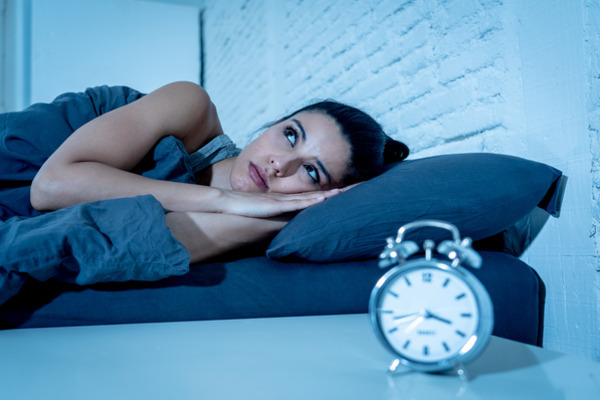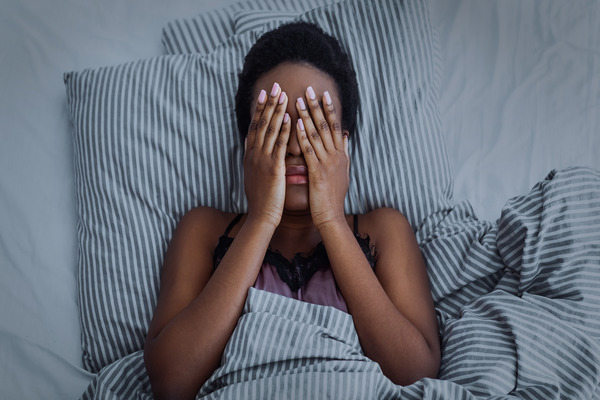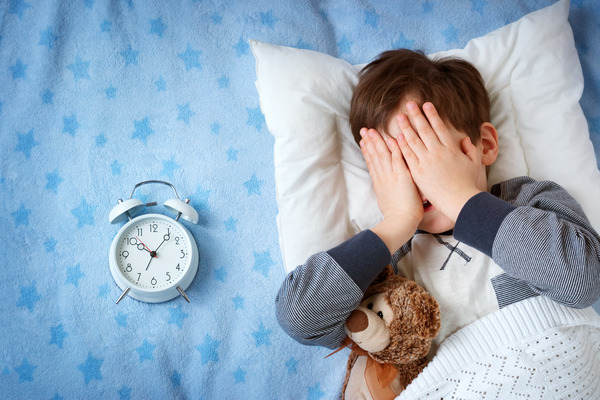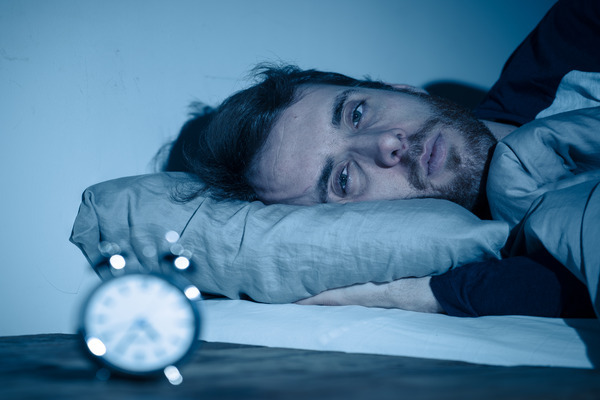Are you having problems with insomnia? Do you know what the consequences of suffering from insomnia can be? Discover the causes of not sleeping well and why.
We talk about sleeping problems when difficulties persist for a prolonged period of time. It is natural that from time to time you have some problem falling asleep, since it is conditioned by physical, environmental and psychological variables. For this reason, it is vitally important to be able to detect these problems and combat them quickly.
What is insomnia?
We could define insomnia as the feeling of suffering from inadequate or deficient sleep due to a mental or physical pathology. The line that separates sleeping problems of insomnia itself is precisely the frequency with which these occur. In this way, suffering from insomnia means spending more than three nights a week with the different symptoms of insomnia that occur.
Despite this, the insomnia It is not defined precisely by the hours of sleep, how much a person sleeps, or the time it takes to fall asleep. One of the characteristics of insomnia is that people who suffer from it experience distress or impairment in functioning as a result of their lack of sleep.
There are different types of insomnia. Insomnia problems can be classified as episodic, persistent or recurrent. That is, depending on the persistence of difficulty sleeping, one type of insomnia or another is established. Among these, the most worrying insomnia is recurrent, that is, insomnia in which more than two or three episodes appear over the course of a year.
The appearance of the insomnia symptoms It can occur at any moment or moment in life. Even so, it is much more common to suffer from insomnia during adulthood. Most insomnia that has a late onset is due to the onset of other health-related conditions.
Symptoms of insomnia
There are different types of insomnia and therefore the symptoms can vary from one type to another. Despite this, there are some signs that are repeated in insomnia.
- Difficulty to fall asleep at night
- Waking up frequently overnight
- Wake up very early
- Not feeling well rested after a night’s sleep
- Tiredness or daytime sleepiness
- Irritability, depression or anxiety.
- Difficulty pay attention concentrate on tasks or remember
- Increase of errors or accidents
- Concerns you continue about the dream
Having most of these symptoms means you may have a insomnia which can lead to major mental and physical health problems. It is vitally important if you suffer from these symptoms to consult with a psychologist to be able to tackle these sleeping problems.

What are the causes of insomnia?
Although there are many potential causes that can produce insomnia , the reality is that there are many factors that are involved in these sleep problems. This lack of sleep can trigger or worsen other health conditions, thus creating a complex chain of cause and effect in insomnia.
1. Mental and physical hyperactivity
One of the causes of insomnia problems is hyperactivity, both physical and mental. Thoughts or rumination before sleeping is one of the main causes that we cannot sleep.
2. Stress
He stress It has many different sequels. One of them is to impact our quality of sleep. The physical response that the body gives to a stressful situation contributes precisely to the hyperactivation of the mind and body. In the same way, the inability to sleep itself can become a source of stress, thus creating a vicious loop.
3. Irregular sleep schedules
Our current standard of living sometimes requires us to go to sleep at different times. In this way, the so-called circadian rhythm is constantly altered, thus making the events more likely. sleeping problems or insomnia.
4. Our lifestyle
An unhealthy lifestyle generates consequences that can lead to having difficulty to sleep. In this way, having bad habits and routines increases a person’s insomnia in every way.
5. Mental health problems
Lack of self-esteem, as well as insecurities or other mental health problems can be one of the causes of insomnia more frequent. In this way, many sleep disorders go hand in hand with a psychological pathology.
Consequences of insomnia
Little or bad sleep can cause serious problems. Obesity, diabetes, risk of suffering from cardiovascular problems, high blood pressure, depression, problems with the immune system… There are many Negative effects which entails not sleeping the hours we should. But insomnia not only affects our physical or emotional health; The functioning of our brain is also significantly affected.
Researchers from the David Geffen School of Medicine at Los Angeles University and Tel Aviv University point out that insomnia is as harmful as getting drunk, and causes the same problems. mental problems , since it alters the correct functioning of the brain. Neural activity is affected and, due to this, we have the ability to perceive the world and, therefore, to interact with everything that makes it up.
The Cognitive ability It is profoundly impaired, neurons move slowly and brain functioning slows down, impairing understanding and carrying out any type of activity. To assess the harmful consequences of not resting well, the work team analyzed the behavior of 12 subjects with epilepsy who had had electrodes implanted in their brains. The researchers wanted to distinguish where and when the attacks begin. During the study, tasks were provided that consisted of ordering a series of given images by categories. The work team showed that, as the hours passed and the experiment participants became tired, the more complex it was for them to perform the exercise.
The professionals analyzed the functioning of the temporal lobe, which houses the memory capacity and visual recognition, and were able to verify that the insomnia It slows down the functioning of brain cells and, therefore, the communication of neurons. Likewise, they discovered that brain cells responded slowly to stimuli and that this also slowed down the functioning of brain waves, which translated into problems performing exercises and even mental lapses.
In fact, specialists even compared the effects caused by insomnia in the brain with those who have a drunk: fatigue, slow brain activity, memory loss problems, poor neuronal transmission, mental gaps or lapses, etc. And, in the long run, these problems are just as harmful to our health as drinking too much every day and going to bed drunk are. Treating insomnia is, therefore, necessary to enjoy a healthy brain and full cognitive activity.

How to detect insomnia?
Sleeping badly for a few days due to a specific issue is normal, but if our sleep problems If they last over time and affect us on a daily basis, we will have a disorder that we must treat. What do we talk about when we talk about sleeping badly?
· Feeling tired and sleepy the next morning.
Far from what is believed, this has nothing to do with the number of hours we have slept. Experts recommend that you sleep an average of 6 or 8 hours, but there are people who function perfectly sleeping 5 hours daily. The hours of sleep They are relative, since each person needs certain hours to wake up well, which do not have to be those that are normally published. And this changes as we age. In this way, insomnia does not have so much to do with the hours we sleep, but with how we wake up afterwards.
· From waking up many times during the night.
Behind we can find problems as important as apnea. The symptoms that we suffer from apnea are dry mouth and headache when we get up. If, even though we sleep our hours, we wake up many times during the night and notice strange symptoms, it is time to go to a professional. But these interruptions can also be due to pain we have or because we suffer from a nervous disorder, such as anxiety. For all of this we will also have to treat ourselves with a professional in order to normalize our rest rhythm, necessary for the correct functioning of the body.
· Affects our lives
When the insomnia problems They end up affecting our routines, it is a good sign to establish that we are having this pathology.
Is there a treatment for insomnia?
Despite what is believed, taking pills does not help end the problem, since experts do not usually use them, except occasionally. Most professionals recommend treating insomnia with psychological therapy to work on good sleep routine such as preparing before going to sleep, for example.
Likewise, it is important to follow a routine before going to bed, as well as resort to different insomnia treatments to fall asleep and say goodbye to sleeping problems.









